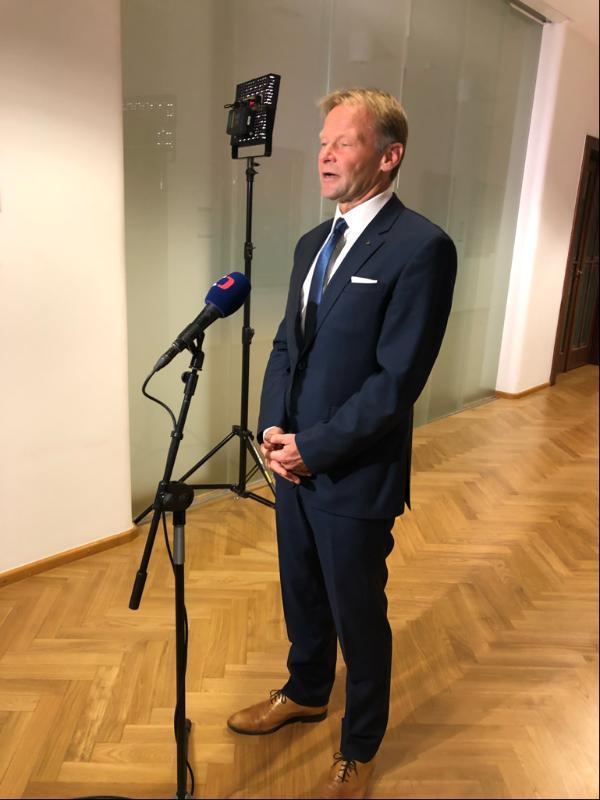
- Since 1993 the EIB has lent EUR 24bn for 195 projects in the Czech Republic
- Additionally, the European Investment Fund has approved 45 deals amounting to nearly EUR 1bn
- Key findings of the 2018 EIB investment survey: investment back to pre-crisis levels; lack of skilled staff remains a pressing issue; only 6% of Czech firms invest in R&D; the labour market is getting tighter
“Over quarter of a century the EIB Group has definitely made its mark in the Czech Republic”, said the European Investment Bank Vice-President Vazil Hudák, during a visit to Prague. “We have financed important pieces of transport, energy and social infrastructure, supported SMEs and targeted climate change. However, investment levels in the country are still not high enough. Our latest survey indicates that Czech companies would benefit from higher investment in education, skills and innovation to strengthen the country’s competitiveness and create high-quality jobs.”
25 Years of EIB Group operations in the Czech Republic
The EIB Group, comprising the European Investment Bank (EIB) and the European Investment Fund (EIF), has played an important role in the modernisation of the Czech Republic’s economy since it started operations in the country in 1993, more than ten years prior to EU accession. As in other EU Member States, the EIB has been supporting investment projects designed to reduce regional disparities, strengthen economic competitiveness and improve people’s living standards. The EU bank’s operations in the country have focused in particular on the development of national and trans-European transport networks, and on support for small and medium-sized businesses and projects having a positive impact on climate action.
The first operations during the early 1990s were targeted at modernising the national roads and railway networks, and at supporting works on the Prague metro. The EU bank provided a helping hand after the devastating floods of 1997 and 2002. Currently, the EIB’s lending operations in the country cover all major sectors of the national economy, ranging from basic infrastructure in the fields of transport, communications, energy and the environment, along with social, regional and municipal facilities, to support for small and medium-sized companies via local financial institutions and the development of a knowledge economy.
Other projects were recently approved by the EIB and should be signed in the near future. Among them: the Czech Railway Infrastructure Rehabilitation (EUR 446m), the Brno Water Infrastructure (EUR 27m), an intermediated loan to Ceska Sporitelna for financing SME and mid-cap projects (EUR 200m) and the Industrial and Business Park Vlnena Brno (EUR 33m).
EIBIS – EIB Investment Survey 2018 – Czech Republic
The annual EIB Investment Survey is back: 401 firms in the Czech Republic were interviewed during the summer, as part of a 12,500 firm survey conducted all over Europe to test market sentiment about investment. Czech firms remain optimistic about the investment outlook. 91% of firms invested last year and on balance, Czech firms expect to keep the same level of investment in 2018.
The main reasons for investing in the next three years are replacement and capacity expansion, with the manufacturing sector more prone to invest to develop new products and processes.
Almost all Czech firms consider the limited availability of staff with the right skills to be an impediment to investment, with concerns mostly relating to intermediate and low-skill workers.
Labour market regulation, business regulation and energy costs – besides uncertainty – are considered to be impediments to firms’ investment by more than 70% of Czech firms.
Innovation is mostly a matter of adoption of innovation. Czech firms invest relatively less than the EU average in intangibles, but manage to have an innovation profile similar to the EU average. The only exception is the higher share of firms adopting innovation, which is a rather typical feature throughout CESEE.

Photographer: Dusan Ondrejicka ©EIB
Download original

Photographer: Dusan Ondrejicka ©EIB
Download original

Photographer: Dusan Ondrejicka ©EIB
Download original